Xhemajl Jashari dreamed of becoming a doctor. Since his childhood growing up in a neighborhood near the Ferizaj bus station, he has always nurtured a desire to serve the community and a determination to embrace where he comes from.
He never hid his ethnicity, even immediately after the war when there was wide scale violence against minorities, especially Roma, Ashkali and Egyptians. He never backed down, even when people called him names because of the community he came from.
“I have never denied my identity,” said Jashari, now 31 and the father of a son. “Even when we were asked about our identity in class for registration purposes, I always stood up and said I am Roma. But we know that Roma children are bullied at school because of their ethnicity and color. This is harmful, because they are young and it affects many aspects of their subsequent formation.”
After the war, his family sold their house and moved to the multi-ethnic Sallahane neighborhood on the outskirts of Ferizaj.
“I always loved school,” said Jashari, who wore glasses and sat on the terrace of the Deutschland cafeteria. Jashari saw Kosovo’s independence as an opportunity to follow his dream. Times were hard and the seven-member family survived on the low salary of his father, who worked as a civil servant at the municipality. In high school, Jashari started working as a nurse and completed the mandatory internship in a public health institution. This marked the beginning of his journey towards his dream of serving the public.
“But my desire was to become a doctor,” said Jashari, who in 2013 enrolled in the Faculty of Medicine at the University of Prishtina. However, financial difficulties forced him to drop out, but he didn’t drop his medical scrubs. As he remembered these hardships, he frowned and smoked a cigarette. He put it out and a faint smile appeared.
“That’s life,” said Jashari, who after all these challenges still tries to see the good side of things. He smiled for most of the conversation, a testament to the energy that had sustained him during 11 years of tireless efforts to become part of the public health system.
Since graduating from high school in medicine in 2012, Jashari has held temporary positions in private clinics and local public health institutions, sometimes through the facilitation of non-governmental organizations. He also volunteered in the public health system, hoping that this experience would help him enter those institutions.
However, vacancies opened and closed and Jashari never received a job offer. Neither the Ferizaj Hospital nor the local family medicine centers hired him. Only after 11 long years of waiting did the doors finally open for him. In January 2023 he started working as a nurse in the emergency department of the Gjilan Hospital.
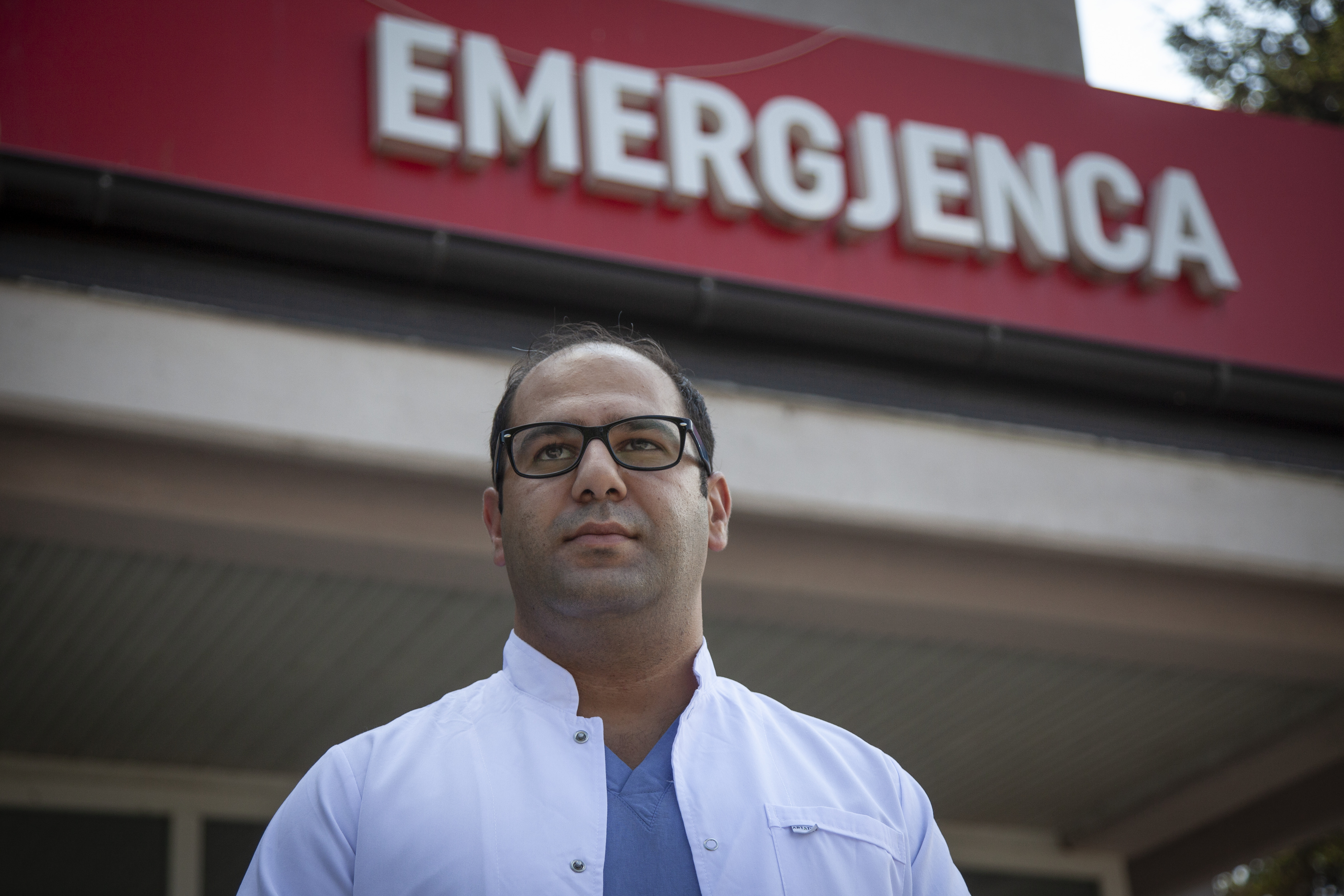
It took Xhemajl Jashari 11 years to secure a job in a public hospital. system. Photo: Majlinda Hoxha / K2.0.
Unlike Jashari, who saw his dream start to come true after a decade, Egzon, now in his mid-20s, didn’t have a chance to realize his dream of becoming an architect.
“My father and mother tell me that when I didn’t have toys, I used to pick up bricks and stones in the yard and build something,” said Egzon, who was sitting in a cafe in the center of Ferizaj surrounded by towering apartment blocks built in the recent construction boom. “Do you see how they are building without an attractive design? Like matchsticks, with small balconies only able to fit two people.”
In 2009, Egzon left school in the tenth grade and gave up on his dream of becoming an architect. He did not have the grades to enroll in academic high school.
“I had bad grades because I was too busy helping my father as a woodcutter, the chainsaw even appeared in my dreams. I didn’t want to go to the trade school,” he said. “I left school and started helping my father more. Each of the children helped a little. One with a wheelbarrow in the bazaar, one collecting cans, just to make a living.”
Egzon also occasionally worked as a porter. On Saturdays, market day in Ferizaj, he used a wheelbarrow to carry customers’ purchases to their cars or to their homes, charging two or three euros a trip.
Egzon (a pseudonym he requested to conceal his identity from his employer) has now been working as a waiter for three years. During the day he works in a cafe and at night in one of the large wedding halls in the suburbs. “In my regular job, my salary is 350 euros without tips,” he said. “At night, at the wedding hall, I get between 40 to 45 euros, without tips. But sometimes when there are wedding guests who like the brandy and I provide them with good service, I get 60 or 70 euros with tips.”
Despite the poor conditions, working as a waiter is safer than other jobs Egzon has done.
“As a child in primary school I used to go with my father to cut wood with a chainsaw,” he recalls. “It wasn’t just the fact that I was just a child and the work was hard, but I could easily have lost a hand or an arm. Now, I know that my employer doesn’t care about my rights but at least the wages are better. My mother doesn’t worry about me and whether or not I will return home safe and well.”
Egzon is the only full-time employee in his family of eight. Until five years ago, his family was part of a state-funded social scheme that helped families with no employed members. Today, Egzon’s father and his younger brother still work as woodcutters, while his two older sisters occasionally work as cleaners.
Even though Egzon has been working for three years, he does not have an employment contract. According to the Labor Law, his rights are being violated, as happens frequently in the restaurant sector in Kosovo.
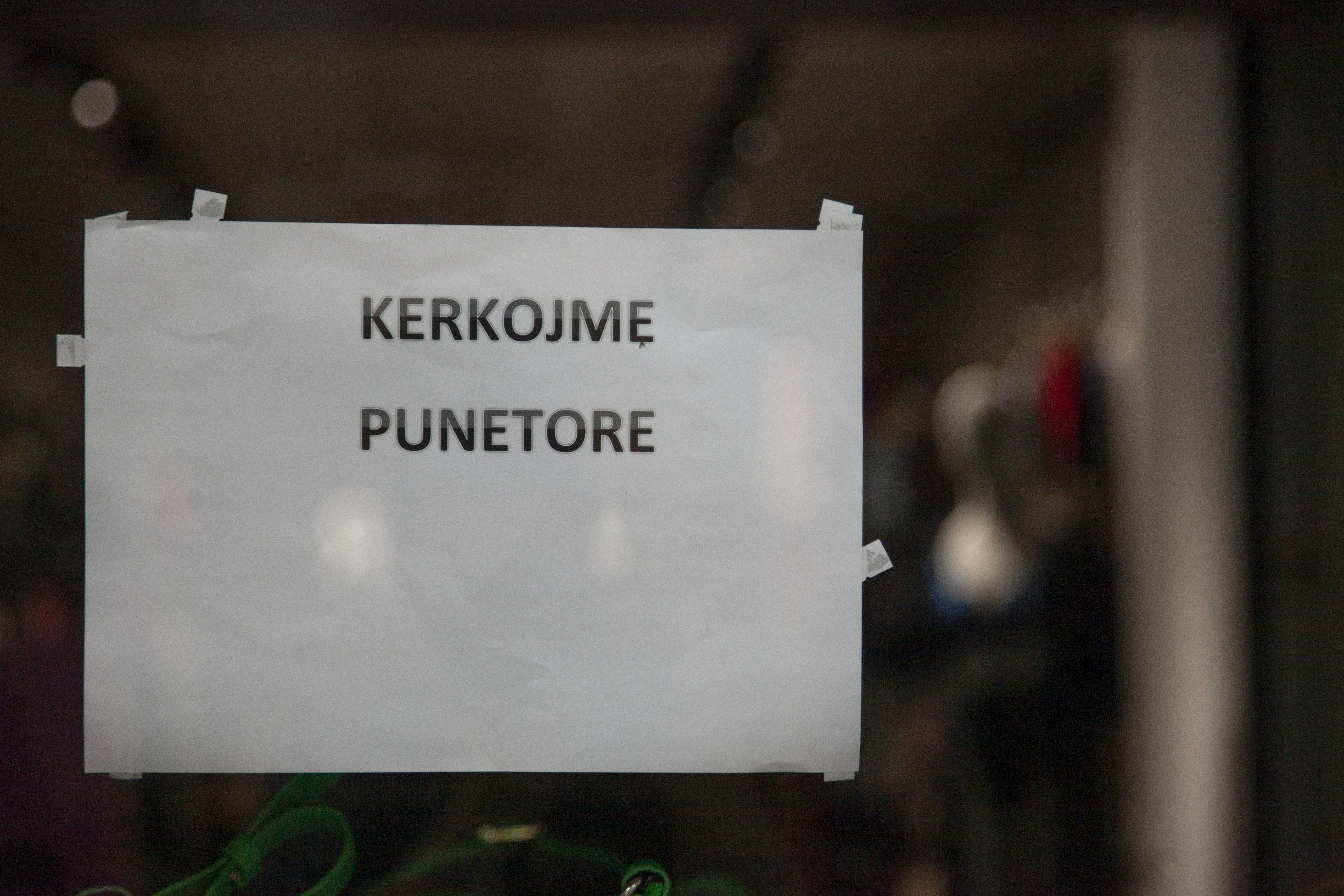
Migration has caused a labor shortage in Kosovo. Photo: Majlinda Hoxha / K2.0.
Egzon’s reluctance to disclose his identity out of fear of losing his job highlights the fragility of working in the restaurant sector. A cafe owner, who declined to be identified, said that although he has employees from the Roma, Ashkali and Egyptian communities, he tries to keep this information away from the media. He fears he would lose customers if this information was public due to the discriminatory attitudes.
“I would suggest you don’t cover this topic, because it will only complicate the integration of these job seekers,” said a cafe owner. “You know how we Albanians are, we can be satisfied with the service that the server gives us and their ethnicity is not a big deal. But if it’s made public, then customers will flee from your cafe, just because you have a Roma or Ashkali employee.”
Low-paying jobs
It’s nearly impossible to pass by a cafe in Kosovo without seeing a sign that reads “We’re hiring.” The labor shortages are mainly related to migration. Poor working conditions — long working hours, lack of contracts and low or irregular salaries — are one of the reasons for the migration of young people. This has created a gap in the labor market.
This shortage has been an opportunity for young Roma, Ashkali or Egyptians, who have long faced discrimination and marginalization in society and the labor market.
The Kosovo Agency of Statistics (ASK) does not have data on the employment of the Roma, Ashkali and Egyptian communities, but according to Roma Versitas Kosovo, the unemployment rate is as high as 40%. According to ASK, the national unemployment rate was 16.6% during the first quarter of 2022. ASK’s data is not aggregated according to ethnicity and accurate data is difficult to gather since the restaurant and retail sectors in Kosovo are largely informal.
Some of the employees and business owners interviewed did not want to speak publicly, but privately admitted that the hiring of more ethnic minorities across the business sector was mainly due to a general labor shortage.
Jusuf Azemi, head of Kosovo’s Independent Trade Union of the Private Sector, said that he has noticed an increase in the number of workers from minority communities.
“All this comes from a lack of manpower. The involvement of them in the labor market will only increase and is very normal,” said Azemi, who was pleased that within a relatively short period businesses have started hiring without ethnic distinction.
Danush Ademi, deputy mayor of Ferizaj and member of the Ashkali community, said that many Roma, Ashkali and Egyptians work in shopping centers and the restaurants, but he noted that working conditions are poor.
“We cannot say that their employment is not a fact,” said Ademi. “But I see that their salary is very small. I don’t know about others, but for those I have spoken to, a salary of 230 or 250 euros for a cleaner is really a disaster.”
According to Ademi, who was a deputy in the national Assembly for 12 years, a significant number of young people from minority communities have been employed in private businesses through the mediation of the municipality. “But we cannot influence the salary. When an employer sees that their employee is doing their job well, then they should increase their salary,” he said. “We have families to look after. If you have a salary of 250 euros, you go to work because you have no other choice. But if you have a salary of 500 euros, then it’s different, you go willingly.”
The average salary of the interviewees in the restaurant sector was between 250 and 350 euros. This is below the 2022 national average of 401 euros.
Due to the discrimination in Kosovar society, the Roma, Ashkali and Egyptian communities are often seen as a cheap source of labor. They are often hired for jobs that are poorly paid, short-term, insecure and highly informal.
Jashari is also a member of the Municipal Committee for Communities, which aims to promote the rights and interests of minority groups. According to him, although more jobs are now available for those from minority communities, high unemployment rates and difficult conditions mean they are less equipped to demand equal treatment and have to accept any job that is offered to them. “There are some of us who do not get to choose their job. What is most important is to have a salary, so as to secure food for their family,” said Jashari.

Many businesses in Kosovo are looking for workers. Photo: Majlinda Hoxha / K2.0.
According to him, in Ferizaj there have always been members of the Roma community working in institutions and doing physical labor. However, there has been a notable increase in those working in other sectors. “When I spend time with them, they say to me: ‘I’m going to clean a cafe, I’m going to work as a waiter, at the cash register, as an assistant chef,'” said Jashari.
Low employment rates are also due to a low level of education as a result of financial constraints.
Etleva Zeneli, project manager at the Kosovar Gender Studies Center (KGSC) in Prishtina, said that the basic right of primary education is inaccessible for a significant portion of Roma, Ashkali and Egyptians.
Jashari, the nurse, said that Roma parents often take their children out of school to help them with work.
“I had an educated and artistic family. My father encouraged us to learn by telling us he would buy us kebabs if we got good grades. And normally children love eating kebabs,” laughed Jashari. “The Roma child doesn’t even have 50 cents to buy potato chips, while other children buy food that costs two or three euros. That child is going to feel bad because he doesn’t understand the economic situation of his family. Awareness campaigns are needed.”
Egzon often felt embarrassed in elementary school because he didn’t have a single cent in his pocket, while his classmates bought things to eat and drink before school and during lunch break.
“You know the saying ‘just look, it’s not for you,’ so I just looked,” he said. “But there always was a friend who gave me something so that I felt included.”
Zeneli said that in addition to more education, there should be awareness campaigns. According to her, the labor market in Kosovo remains insecure, discriminatory and exclusionary for groups such as women, the LGBTQ+ community as well as for Roma, Ashkali and Egyptians.
The employment rate among women in Kosovo is notably low, only 17%. Research carried out by KGSC states that the employment rate for women from the Ashkali and Egyptian Roma communities is only 8%.
According to Zeneli, racism and sexism combine to make Roma, Ashkali and Egyptian women some of the most discriminated against in Kosovo. “These women experience double discrimination, for the fact that they belong to a minority community and because they are women. They are in a significantly more sensitive position compared to the women from the majority community and men from minority communities,” she said.
Even institutions are discriminatory
Florim, who requested a pseudonym for fear of being fired, started working for a Ferizaj-based furniture manufacturer six months ago. The young Roma man in his early twenties from a village near Ferizaj was promised a salary of 250 euros. But his salary has been delayed several times without any explanation.
“It’s not just that they are giving him a low salary, but it is also being delayed because he is not Albanian,” his father claimed. “I have told him to be patient and wait until he learns the craft. We should bear in mind that many workers are leaving, later they will beg my son not to leave, even if he wants to.”
Florim mentioned how in his workplace he has often been addressed with the racial slur “magjup.”
“Sometimes the bosses don’t treat me how they treat my Albanian colleagues, because I’m not like them,” Florim said.
Sociologist Kushtrim Bekteshi said that the racism against Roma, Ashkali and Egyptians must be acknowledged. “We can see the pejorative language used towards them and this demonstrates society’s attitude to the Roma community,” said Bekteshi. “Not only have they not been treated equally, but they have been excluded from the labor market.”

Sociologist Kushtrim Bekteshi, said that instances of racism in Kosovo are not isolated. Photo: Majlinda Hoxha / K2.0.
Even qualified and skilled workers from these communities face exclusion in the labor market. In the early post-war years, few from these communities had the university degree necessary to qualify for many public jobs. But the number has long since increased while their representation in such jobs has stayed flat.
According to a report by the organization Voice of Roma, Ashkali and Egyptians, in 2019 there were a total of 277 Roma, Ashkali and Egyptian employees in municipalities in Kosovo, 123 in civil and public service, 95 in education, 35 in administration and 24 in the health sector. This number constitutes only 0.35% of the 79,000 total employees in public administration, education and health.
According to ASK data, the Ashkali community makes up 0.9% of the population of Kosovo, Egyptians 0.7% and Roma 0.5%. The Kosovo Constitution guarantees protection and rights for minority communities, including guaranteed spots for them in the Assembly. According to the law, Roma, Ashkali and Egyptians enjoy affirmative measures for representation in central and local institutions.
While minority communities have adequate representation in institutions like the Assembly, they are underrepresented at the municipal level. The municipality of Ferizaj has not met the required minimum threshold for the representation of each minority community in the civil service, which is supposed to be proportional to their population in the municipality.

Deputy Erxhan Galushi said that government policies for opening new job positions for the Roma community are not enough. Photo: Majlinda Hoxha / K2.0.
Erxhan Galushi, deputy in the Assembly from the Roma community, said that Roma are facing a battle for employment due to political influences and social stigma.
“I can say that it is very difficult for us, despite the fact that a considerable number of young people from the Roma community meet the necessary criteria for employment,” said Galushi. The government has undertaken several initiatives to create new jobs, such as “Superpuna,” which provides employment help for young people who have never had a job and “Government for the Families,” which aimed to employ one person from every family with no employed members. Galushi said that these policies are good, but not enough for the Roma community.
“I said this in the Kosovo Assembly as well. The need for employment in minority communities, specifically for the Roma community, should be a priority due to the many injustices they have faced in terms of employment in the post-war period,” said Galushi.
Jashari, who regularly travels by car between Ferizaj, Gjilan and further afield, is convinced that the lack of political support has made it hard for him to gain regular employment in public institutions.
“In the end, they always hired someone that had stronger ties with people in politics,” he said. Once, a hospital director convinced him not to submit a complaint for being rejected from a job, claiming that “in two weeks there will be another job opening.” The job opening never appeared. In such instances, it occurred to him that he could be facing these injustices because of his ethnic background.
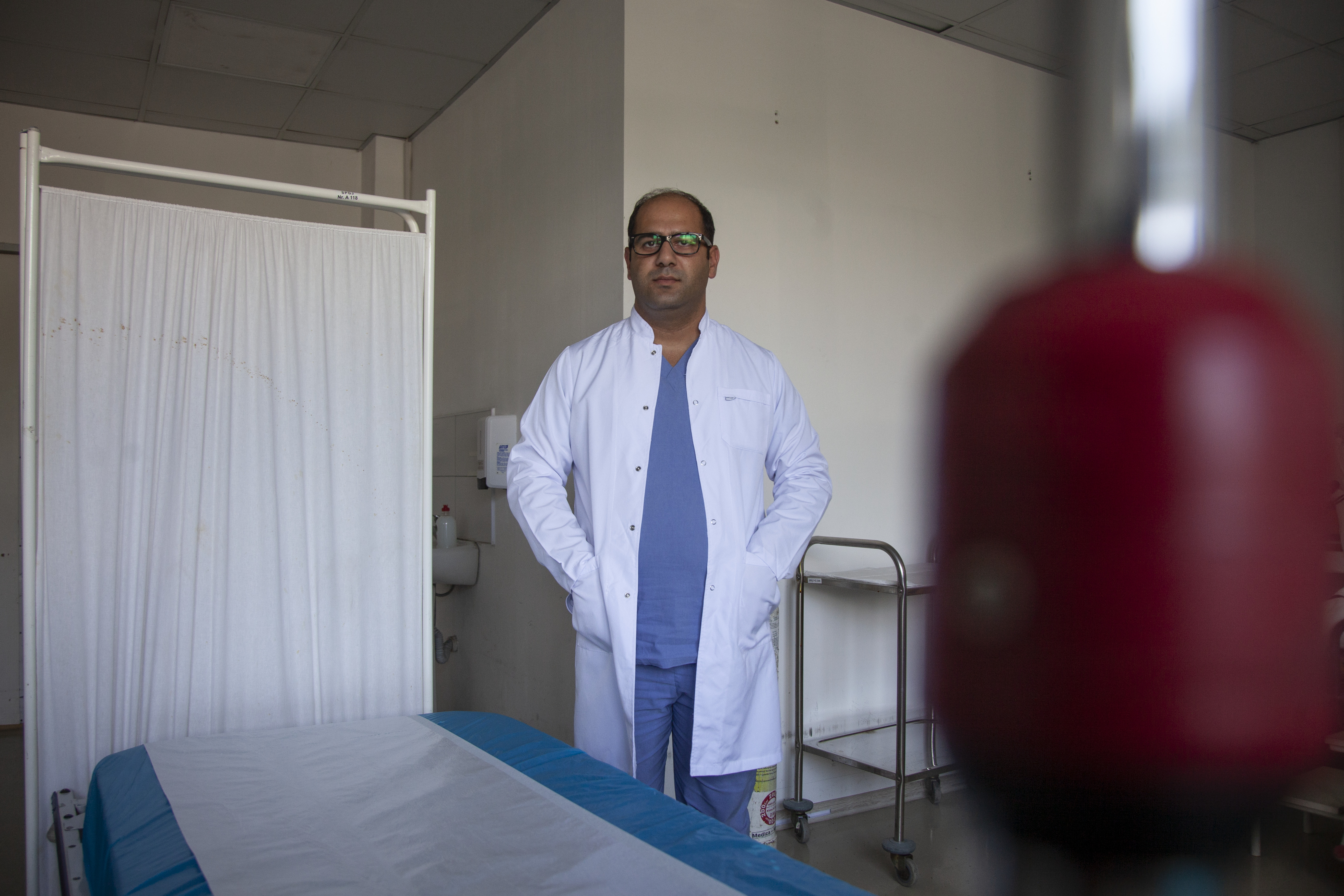
Xhamajl Jashari is convinced that a lack of political support has made it hard for him to gain regular employment in public institutions. Photo: Majlinda Hoxha / K2.0.
“I have always expressed who I am and I have not hidden my identity, but truthfully, I also had moments of despair when I knew I was better, when I knew I deserved that job and I couldn’t get it,” he said of his 11 year struggle to enter public health institutions. “I always knew I was being discriminated against, several times I nervously said to my family ‘why can’t I be part of this, why did this happen?'”
Disappointment from repeated rejections made Jashari consider concealing his ethnicity on his application. “Sometimes I said to myself, if I don’t declare who I am, maybe I will have more success. But then I thought, how could I possibly identify differently from who I am? Of course there were moments of despair, but they were brief,” he said.
Sociologist Bekteshi said that there is work to be done to accelerate the integration of marginalized communities. “Integration at an institutional level is necessary, but insufficient,” he said. According to him, social integration, where people work and learn together, is a slower and more difficult process, but necessary.
The creation of job opportunities for Roma, he said, would result in a more positive perception of them. If jobseekers from minority communities become part of the labor market, society will see their employment as normal, while currently “it has been seen as exceptional,” Bekteshi said.
Migration and discrimination
If working conditions and general well-being are not improved, migration to European countries becomes the only hope for the Roma, Ashkali and Egyptians in Kosovo.
In the Sallahane neighborhood, a lively scene unfolds on a Saturday in mid-July. The cafes on main street are bustling with activity and traffic clogs the narrow road which is packed with cars bearing license plates from Western countries.
“There is no household without a sister, a brother or someone who is abroad and helping the family,” said Jashari, discussing the impact of diaspora remittances in his community. When he was working as a nurse with a salary of 250 euros, he had also considered turning his back on Kosovo. “With 200 or 250 euros, I couldn’t even cover the cost of travel and food, but I didn’t want to leave my parents alone.”
Over the years, migration has significantly affected these communities. Although the exact number is unknown, it is estimated that more than 100,000 Roma, Ashkali and Egyptians from Kosovo now live outside the country. The first large-scale exodus occurred during the war in Kosovo between 1998 and 1999.
Since the end of the war, forced migration continued at a slower rate, which then increased after the violence in March 2004. After the drowning of three Albanian children in the Ibar River near Mitrovica, Kosovar media baselessly reported that they had been chased into the river by a group of Serbs. This led to escalating riots targeting Serbs, their homes and Serbian cultural institutions in Kosovo that resulted in 19 deaths, hundreds of injuries, burnt houses and thousands of displaced people. Roma, Ashkali and Egyptian communities and their homes were also attacked during the riots, which led to a new wave of migration.
Migration peaked again during 2014 and 2015 when around 10,000 Roma, Ashkali and Egyptians left Kosovo within a few months. Between 2012 and 2015 more than 130,000 people left Kosovo and applied for asylum in Western Europe, mainly for economic reasons.
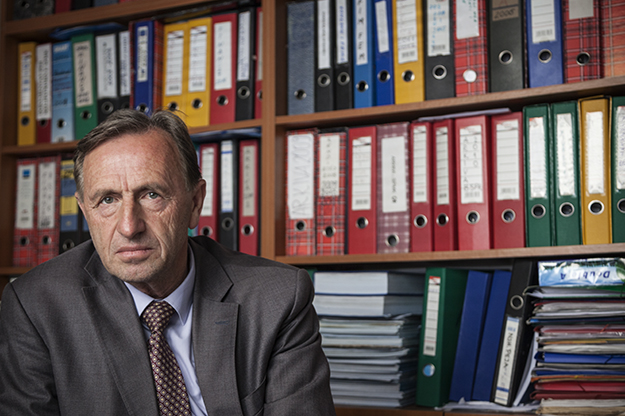
Jusuf Azemi, head of Kosovo’s Independent Trade Union of Private Sector, predicts an increase in the labor force shortage. Photo: Majlinda Hoxha / K2.0.
Azemi said that although jobseekers and workers are physically in Kosovo, their minds are focussed on how to leave.
“The labor shortage will increase because 50% have decided they will leave because they are not being treated properly in the workplace. Even 24 years after the war, they don’t want the workers to have a basic standard of living,” said Azemi. He thinks that after the visa regime is lifted, many businesses risk closure.
“The situation is more serious than the media outlets let on. I am convinced that 90% of employers lack skilled employees. In reality, the biggest losers will be business owners, because the skilled workers who know how to operate the machines will leave,” he said. “All of this seems premeditated, because the main goal was to subjugate workers economically and socially, who just wanted an education and a stable life for their families.”
According to Azemi, many people are waiting for January when the visa regime for Kosovo is expected to be lifted. “It’s not that they don’t love Kosovo, but they will go in search of a better life, for a better job, because no one wants to work for three or four euros a day. Businesses should be wary, because January will come.”
Jashari thinks likewise.
“Among the minority communities,” he said, “as is the case with the majority of Kosovo, most are thinking about how to leave, for better work and a better life.”
Feature image: Majlinda Hoxha / K2.0.
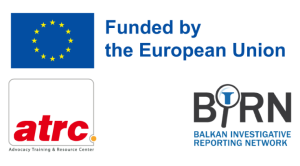
This article was produced with the financial support of the European Union in the scope of the “Protecting and Promoting Labour Rights of Vulnerable Groups in the Labour Market” project.
Its contents are the sole responsibility of Kosovo 2.0 and do not necessarily reflect the views of the European Union, ATRC or BIRN Kosovo.
Why do I see this disclaimer?









